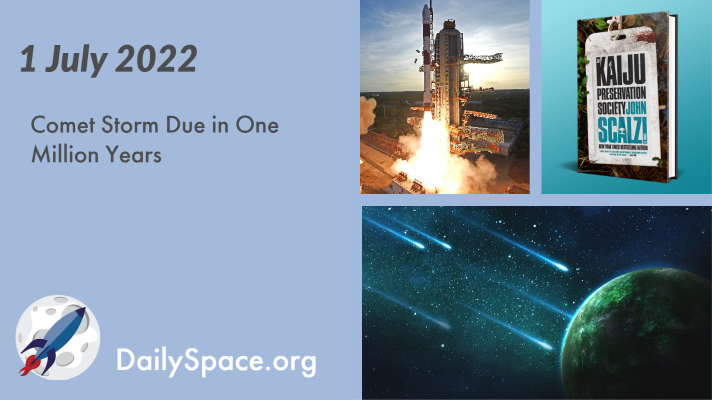
Jul 4, 2022 | Asteroids, Comets, Crewed Space, Earth, ISRO, Neptune, Our Solar System, Review, Rockets, Science, Uranus
A star cataloged as Gliese 781 is approaching our solar system and in slightly more than a million years from now, will reach the Oort Cloud, likely disrupting the orbits of icy bodies that could head toward Earth. Plus, an Indian launch, Asteroid Day, understanding our ice giants, and a review of Kaiju Preservation Society by John Scalzi.
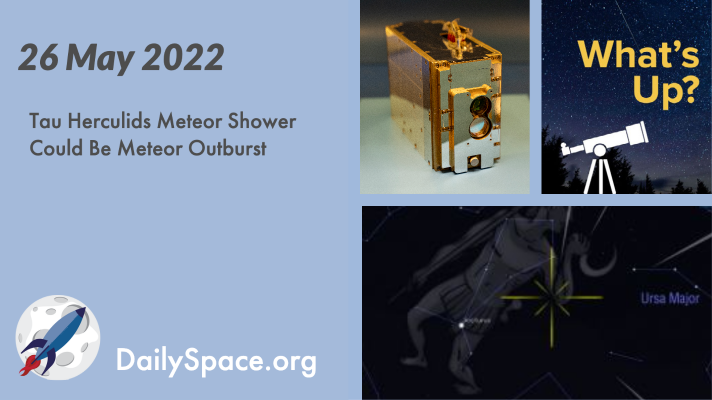
May 27, 2022 | Climate Change, Comets, Cosmology, Daily Space, Earth, Guest Interview, JWST, Rockets, Spacecraft, SpaceX
Due to the gravitational pull of Jupiter on the fragments and dust of comet 73P/Schwassmann-Wachmann, Earth’s orbit may be moving through a dense portion of the comet’s trail on May 31. This alignment could result in an unusually spectacular meteor outburst, and we’ll interview astronomer Pierre Martin about this possible event. Plus, a SpaceX launch that wasn’t Starlink, a new solar sail, and JWST.
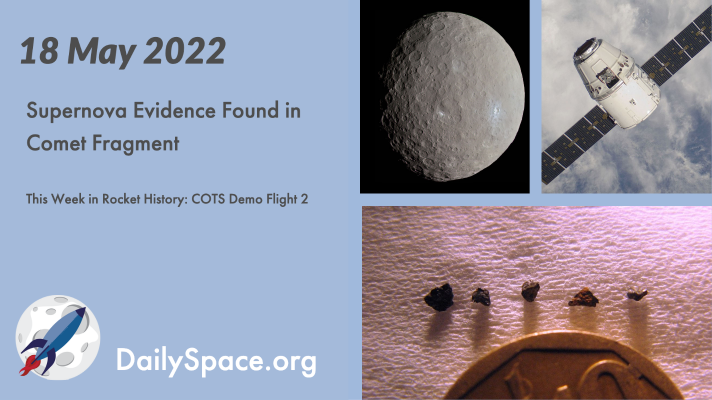
May 19, 2022 | Asteroids, Comets, Daily Space, Earth, Mars, Our Solar System, Random Space Fact, Rockets, Space History, Spacecraft, SpaceX, Supernovae, The Sun
A forensic analysis of the element concentration found in the Hypatia stone finds evidence in the cometary fragment, which may have impacted Earth 28 million years ago, of a supernova origin story. Plus, Ceres, Mars, and this week in rocket history, we look back at SpaceX’s COTS Demo Flight 2.
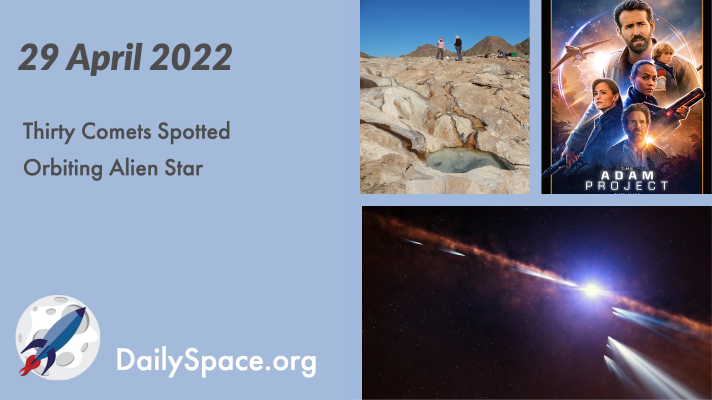
May 2, 2022 | Asteroids, Astrobiology, Comets, Daily Space, Earth, Exoplanets, JWST, Moon, Our Solar System, Review, Rockets, Space China
Using data from TESS, a new paper presents evidence for the discovery of thirty potential comets orbiting in the Beta Pictoris system. Plus, astrobiology research, water on the Moon, solar system formation, and a review of “The Adam Project” starring Ryan Reynolds.
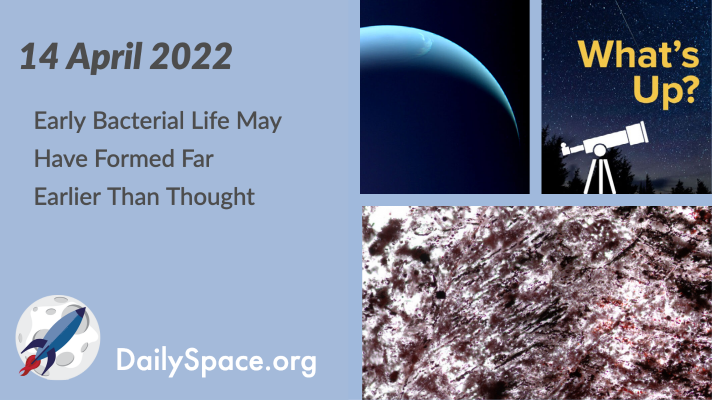
Apr 15, 2022 | Asteroids, Astrobiology, Comets, Crewed Space, Daily Space, Earth, Galaxies, JWST, Lucy, Mars, Mercury, Moon, Neptune, Saturn, Sky Watching, Stars, Supermassive Black Holes, Venus
An analysis of microscopic features in rocks from the Nuvvuagittuq Supracrustal Belt in Quebec, Canada, which date back between 3.75 and 4.28 billion years, finds evidence of possible microbial life. Plus, a supermassive black hole precursor, temperatures on Neptune, check-ins with various spacecraft, and our weekly What’s Up segment.
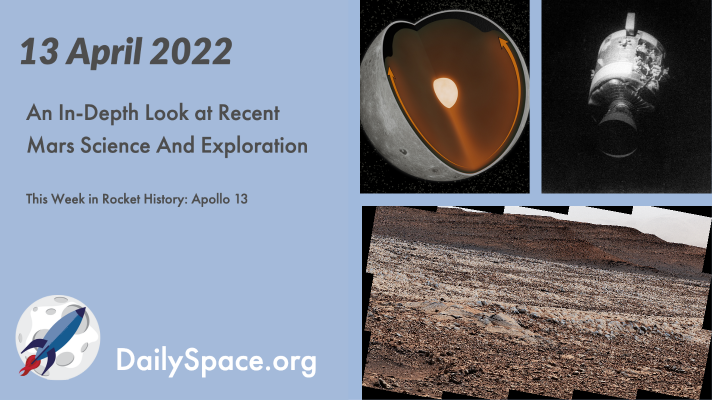
Apr 14, 2022 | Comets, Crewed Space, Curiosity, Daily Space, Mars, Moon, Random Space Fact, Space History
A new paper looks at marsquakes and what is causing them, which turns out to be magma moving. And Curiosity has found rocks it needs to go around. Then there is the weather on Mars. Plus, lunar formation, a giant comet, and this week in rocket history, we look back at Apollo 13.








 We record most shows live, on Twitch. Follow us today to get alerts when we go live.
We record most shows live, on Twitch. Follow us today to get alerts when we go live.